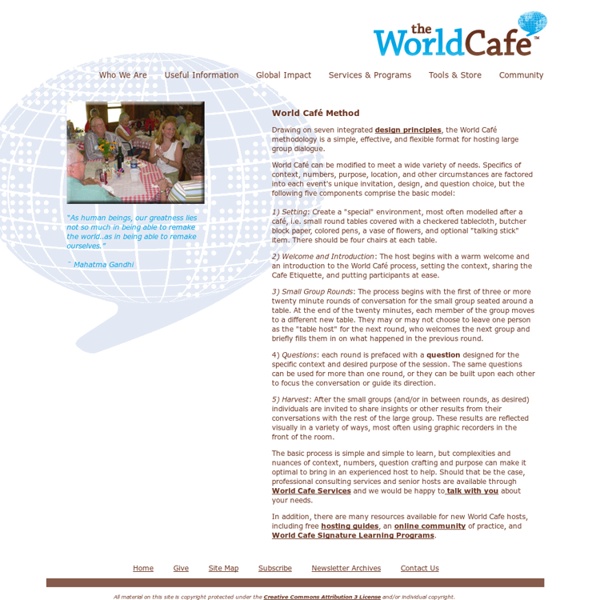World Café Method
Drawing on seven integrated design principles, the World Café methodology is a simple, effective, and flexible format for hosting large group dialogue. World Café can be modified to meet a wide variety of needs. Specifics of context, numbers, purpose, location, and other circumstances are factored into each event's unique invitation, design, and question choice, but the following five components comprise the basic model: 1) Setting: Create a "special" environment, most often modelled after a café, i.e. small round tables covered with a checkered tablecloth, butcher block paper, colored pens, a vase of flowers, and optional "talking stick" item. There should be four chairs at each table. 2) Welcome and Introduction: The host begins with a warm welcome and an introduction to the World Café process, setting the context, sharing the Cafe Etiquette, and putting participants at ease.
Complete A Sentence
In qualitative marketing research, projective techniques explore associations with brands, symbols, products, advertising, and images. It explores people’s subconscious feelings, beliefs, and desires. Respondents project their feelings and beliefs about other people or objects. With sensitive subjects, the technique works well. Four Practical Projective Techniques Here are four practical and simple techniques. Metaphors, Analogies, and SimilesThird-Party ProjectionsRole-PlayingAssociations Metaphors, Analogies, and Similes A metaphor represents or explains something in terms of another. Metaphors are a window to the mind. Most importantly, metaphors can reveal underlying emotions about a target domain…such a product or brand. You can use the results from metaphor techniques to develop advertising, brands, sales pitches, and to support product or brand positioning. Here is a simple sentence completion exercise using similes. “My cell phone is like a…” “A cell phone is like a best friend.”
Workshop formats: World cafe
Not an original notion - but an interesting one. The World cafe concept has been around a while www.theworldcafe.com. We use this technique often in our workshops (dial-e.net), and at a recent event UTS (University of Technology Sydney) it attracted some interesting comments - so perhaps worth a reminder. You've done some input, you have some group tasks defined and the groups are all working away. In this workshop model (there are lots of variations) 7 groups of 4 each worked away on the task we had assigned them for 15 minutes, supported by a single sheet of A4 on which to record their comments (having white paper tablecloths and lots of pens works even better). On a practical level it makes the facilitators time control task easier, and for participants it makes for a more engaging feedback process. The variations are part of the fun, but it can work well with 16 or 160 !
The World Cafe
The World Cafe refers to both a vision and a method of dialogue. It evolved out of conversations and experimentation one day at the home of consultants Juanita Brown and David Isaacs. World Café Conversations are an intentional way to create a living network of conversation around questions that matter. A Café Conversation is a creative process for leading collaborative dialogue, sharing knowledge and creating possibilities for action in groups of all sizes. The challenges of life in the 21st Century require us to find new ways to access the wisdom and intelligence inherent in groups both small and large. The methodology of the World Café is simple: The environment is set up like a café, with tables for four, tablecloths covered by paper tablecloths, flowers, some colored pens and, if possible, candles, quiet music and refreshments. In World Café, the formulation of powerful questions is a fundamental art and skill. The seven design principles of World Café are: For more info see
Related:
Related:



